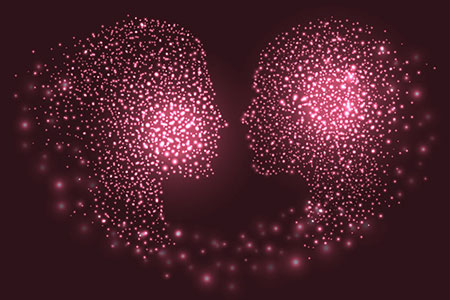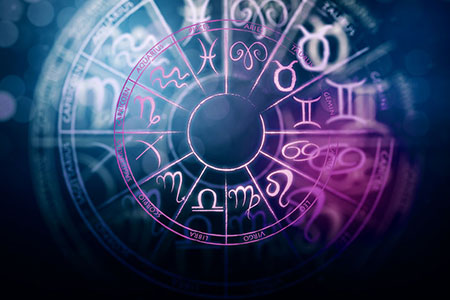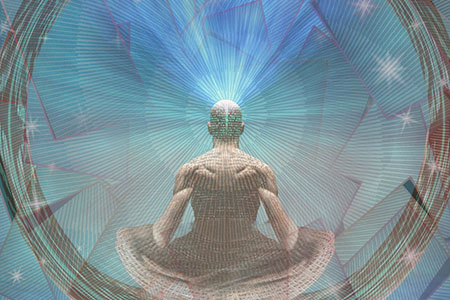unconditional love
How To Send Remote Healing
 It is very disheartening when a loved one is not in the best of health, and due to circumstances you cannot be with that person. The good news, however, is that you do not need to be with them to assist or support them! Geographical distance does not stop you from sending them healing and love!
It is very disheartening when a loved one is not in the best of health, and due to circumstances you cannot be with that person. The good news, however, is that you do not need to be with them to assist or support them! Geographical distance does not stop you from sending them healing and love!
You see, cosmically speaking, we are all connected, and through this Universal network we can send positive vibes to those we care about. All you require is a little faith and focus.
Start With Yourself
There is no point in trying to send support to someone else, if you are not in a good place yourself. Therefore, connect with nature as much as you can, self-nurture to the maximum, feed your five senses regularly with all the good things in the world (meaning that what you hear, see, smell, taste and touch need to be as positive as possible). Bring the ‘feel-good factor’ into your life. Meditation can also be beneficial before sending someone else healing.
If you can get outside for some ‘natural nurture,’ do remember that trees can help bring about a great sense of serenity and calm. Choose the one you feel the most connected to, position yourself close to it and see how quickly you feel better, and thus ready to send positive energy and healing to your loved one in need.
Death Is Never Final
 Most of us have lost someone dear to us, whether it be a grandparent, parent, child, friend or co-worker. And when this happens, many of us wonder why, and what happens next? Know this: death is never final.
Most of us have lost someone dear to us, whether it be a grandparent, parent, child, friend or co-worker. And when this happens, many of us wonder why, and what happens next? Know this: death is never final.
Death is simply the spiritual essence leaving the physical body. Each one of us is born with this spiritual nature, our soul energy or spiritual essence. We are given a physical body to carry us through this journey on Earth, and throughout this life journey our physical bodies change. However, our spiritual essence remains constant from before our birth, and carries us forward to many other realms and new incarnations, beyond the physical death at the end of this lifetime.
My clients are often concerned about their departed loved ones. Is my mother in pain? Is my family okay? Is my child still suffering? Is my husband safe? Is my friend stuck in between worlds because she took her own life?
The simple answer to all these questions is: yes. When we pass, our physical body is no longer needed and our spirit simply returns to the Highest, or Heaven, or Universal Love, or Source. There is no ‘hell’ or ‘bad place’ after this life. It is all good for all of us. It is a place of peace and simplicity. A plane of existence or realm of the utmost, purest, highest state of unconditional love.
When we lose someone close to us, the essence of their spirit returns to us at different times after their passing. You may see, hear, sense, or even smell them, and sometimes even feel them touch you. All these experiences are real. If you feel them around you, they are there. If you feel a feather like touch on your cheek, they are there. If a scent reminds you of someone, they are there. If you swear someone just sat on your bed, but no one is in your room, they are there.
December 2019 Weekly Astro Forecasts
 December 2 – 8
December 2 – 8
Jupiter makes its grand entrance into Capricorn today – a sign that promises great change ahead for the next two years. Though the shifts may be subtle at first, Jupiter in Capricorn signals a return to stability, security, responsible action and justice for all. So with that in mind, important happenings could manifest during this cycle.
Monday’s Aquarius Moon could make for a scattered day, so agreeing to follow the whims of the Universe will keep you from feeling frustrated, or put-upon. Just trust that Spirit has a better plan, which may not make sense until later in the week.
Things calm down under Tuesday and Wednesday’s Pisces Moon, calling for us to go internal and focus more on spiritual matters and gratitude.
When do we get our energy and drive back? That would be Thursday when the Moon moves into inspiring Sagittarius and urges us back on track. There’s plenty to do before the holidays kick in, and you may actually find Sunday to be your most productive day on a personal level, as the Taurus Moon grounds and directs us forward.
December 9 – 15
The week starts off with Mercury moving into Sagittarius, finally leave the sign of Scorpio, where it’s been hanging out for the past nine weeks. This transit will add a light-hearted and holiday-spirited tone to our thoughts and communications.
We’ll need to finish up any lingering tasks under Monday’s Taurus Moon, as it could be the last day of the week we’ll be grounded enough to complete them.
The World Needs You
 The concept of spiritual awakening is central to most New Age teachings and modern metaphysical belief systems. This is because we can only create effective change in this world once we become aware, or conscious, of the world around us.
The concept of spiritual awakening is central to most New Age teachings and modern metaphysical belief systems. This is because we can only create effective change in this world once we become aware, or conscious, of the world around us.
So, what exactly does it mean to ‘wake up’ in spiritual terms? Too many people believe that being spiritually ‘awake’ or ‘conscious’ is simply observing the challenges that are all around us. However, this is not the full implication of being aware from a spiritual perspective.
It is true that we must be able to see things more clearly and honestly, to be able to make changes for the better. But, being awake from a spiritual perspective is much more about personal responsibility than it is about just recognizing the challenges that exist on the planet.
Author and philosopher, Howard Thurman, said, “Don’t ask what the world needs. Ask what makes you come alive and go do it. Because what the world needs is people that have come alive.” He makes a very valid point.
To be spiritually-minded is to recognize that we are the creators of our world and our own reality experiences. Every thought we think is being returned to us as experience. It is true that there are tremendous challenges facing our world today, but it is equally true that we are either contributing to those challenges, or dissolving those challenges through our own personal patterns.
Our thoughts and beliefs contribute to the war, famine, dis-eases, and other challenges the world is facing. Our thoughts can also contribute to global peace, abundance, and prosperity.
Unconditional Love Is Heaven On Earth
 When I was a little girl, I remember going to my grandparents’ home during the summers. I couldn’t wait for the summer to arrive, to get to spend time with them. It was always magical. The months leading up to those wonderful stays were always filled with anticipation and excitement.
When I was a little girl, I remember going to my grandparents’ home during the summers. I couldn’t wait for the summer to arrive, to get to spend time with them. It was always magical. The months leading up to those wonderful stays were always filled with anticipation and excitement.
Always having something to look forward to adds to the enjoyment and contentment of life. Whether it’s an upcoming event or something we are looking forward to, such trying an adventurous activity, or reading that new book you’re excited to dive into. Books have always been for me a bit of a mental vacation, because you can relax, while going places to imaginative places in your mind.
I believe the magic and enjoyment of getting to spend time with my grandparents came from it being filled with love and attention. Thinking back now, they were the only adults, when I was younger, who gave me their full attention and truly unconditional love. They were never too busy to sit and talk with me, or share stories from their childhood, which I found very fascinating.
Not all Grandparents are alike though. Some can be all about gossip, judgment, neglect, even abuse, and not the best role models. I was lucky that on my mother’s side of the family this was not the case. My maternal grandparents had all the traits and attributes one would imagine a truly loving grandparent to have.
I have memories of being in tears when having to leave and go back home. There I just spent my days alone in my room, as my parents were often too busy with church and other social groups they were involved in. I suspect all that time I was forced to spend on my own, helped me to expand and open my mind, to tap into those deeper areas of the psyche that are often left dormant.
How To Be A Clear Channel
 It is said that we are spiritual beings having a physical or human journey. I often also hear people say that some people are ‘more spiritual’ than others. I cringe whenever I hear such things, because we all come from the same Source, which means that there is no differentiation between any of us.
It is said that we are spiritual beings having a physical or human journey. I often also hear people say that some people are ‘more spiritual’ than others. I cringe whenever I hear such things, because we all come from the same Source, which means that there is no differentiation between any of us.
In fact, in nearly every spiritual tradition the term ‘spiritual’ is derived from one of two words. It either comes from the word breath, or it comes from the term life source. This means that everyone that is alive and breathing is equally spiritual, no matter who they are.
It is true that there are some people who may be more effectively walking a ‘spiritual path.’ This is because such people embody spiritual principles to a greater degree, or are more in alignment with certain spiritual principles, such as love, joy, peace, and serenity. But we are all ‘channeling’ spirit at all times, because we are all spirit at our core.
So, what does it mean to ‘channel’ spirit? Many believe that there are distinct supernatural components to being spiritual, which may sometimes be the case. However, channeling spirit simply means to live in such a way that you actually embody the primary spiritual principles.
Channeling spirit is simply living a life that exudes love, joy, peace, patience, kindness, gentleness, faithfulness, and self-control. These are principles that show up in nearly every spiritual tradition or belief system. In Christianity, for example, these principles are known the Fruit of the Holy Spirit.
Choosing Love And Expecting Miracles
 I begin each day with the affirmation, “I focus my attention on the love that is around me, and I expect miracles.” After saying this affirmation of faith, I step back and watch the many miracles of the day unfold.
I begin each day with the affirmation, “I focus my attention on the love that is around me, and I expect miracles.” After saying this affirmation of faith, I step back and watch the many miracles of the day unfold.
I learned this, and many other spiritual techniques, from the author and speaker, Gabrielle Bernstein. The daily result can be as simple as coming across a favorite book in a second hand shop, knowing it is Universe’s way to tell me that it’s time to read it again… or realizing that I hit every green light on my way home!
When the Universe blesses you with such miracles, big or small, it’s important to say thank you. Your relationship with Universe should always be an ongoing conversation, in the same way you would with a close, loving friend. Connecting with the Universe daily, is the key to receiving these miracles.
If you want to be on a powerful spiritual path, meditation is the best way to get there. Even if you have to start by sitting silently and simply listen to your breathe for a few minutes, you can begin to feel the benefits almost immediately. Continued meditation can lead to amazing miracles in your life, and also offers you less stress, reduced chance of depression, calmer mind, and the ability to have successful relationship.
I argue less with my husband since I started meditating, for example, and our relationship has grown stronger (another miracle). In times of crisis I have also been able to reduce my stress significantly, compared to what it used to be before I chose to meditate (another miracle).